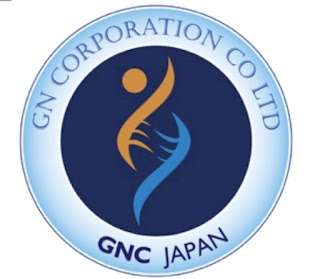Life expectancy of patients suffering from Duchenne Muscular Dystrophy now increased, says study by a group of Indian Doctors and Japanese Scientists
- DMD is a rare genetic disease where the patient gets wheelchair bound by the age of 12
- The treatment is a food additive – Neu-REFIX that increases levels of dystrophin in the blood
- Neu-REFIX has no side effects as compared to the existing two major treatment regimens
- This treatment is far more affordable that the existing treatment regimes
- The human clinical study has shown an increase in muscular strength and walking capacity
10 July, 2023, Chennai: A team of doctors from Tamil Nadu, have developed a safe disease modifying treatment for Duchenne Muscular Dystrophy (DMD), jointly with scientists from Japan, using a novel immune modulating Beta 1,3-1,6 glucan (Neu-REFIX). The results of their clinical trial published in IBRO Neuroscience Reports - the official journal of the International Brain Research Organization - has confirmed the safety and improvement of muscle strength in a short span of 45 days in those who consumed Neu-REFIX beta-glucans compared to the patients in the control group.
Dr. K. Raghavan, Dept of Paediatric Neurology, Jaicare Hospital, Madurai, said, “This is the first such treatment for DMD patients in the world that, without any side effects, offers improvement in the quality of life and increases life expectancy. This uses a food additive which increases the levels of dystrophin - a cytoplasmic protein which is responsible for muscle functions in the heart, limbs and blood vessels - in the blood to 32%. DMD patients have got very low levels of dystrophin and this new treatment addresses the disease at its fundamental level of muscle pathology.”
The collaboration was led by Dr K. Raghavan in India and led in Japan led by Prof Nobunao Ikewaki (Kyushu Health and Welfare University, Miyazaki), who undertook basic research and pre-clinical studies in animal models using a novel Beta glucan produced as an exo-polysaccharide by N-163 strain of a yeast Aureobasidium Pullulans (Trade name: Neu REFIX) commercially available in Japan as a food additive. This interdisciplinary team was brought together by the GN Corporation, Japan, an organization involved in developing novel solutions in healthcare using Japanese technologies.
Duchenne Muscular Dystrophy (DMD) is a rare genetic disease where the patient usually become wheelchair-bound by around the age of 12 due to muscle weakness and will then die prematurely. This affects 1 in 3500 male births worldwide and there are approximately 80,000 patients in India.
Disease-modifying treatment - the approach that slows down the progress of the disease – continues to be the main type of treatment for DMD. Two of the treatments - the Gene therapy that costs INR 26 crores and the Exon skipping therapies costing INR 1.2~2.0 crores – are not affordable for most people.
Prof. Nobunao Ikewaki, Dept. of Medical Life Science, Kyushu University of Health and Welfare, Japan, said, ”Our research showed the potential of Neu-REFIX in immune modulation and controlling the fibrosis which causes muscle weakness in DMD due to lack of dystrophin. The collaboration included Dr Samuel JK Abraham, Centre for Advancing Clinical Research (CACR),University of Yamanashi - School of Medicine, Chuo, Japan and Head, R&D of GN Corporation, Japan as well as Prof Pushkala Subramaniam (Prof. of Immunology, TN MGR Medical Univ., Chennai).
“If myocardial fibrosis can also be controlled with Neu-REFIX, it could become a promising universal immune modulator and a drug adjuvant to many auto-immune and inflammatory diseases,” said Prof. Pushkala. The research proved, in the MDX mice model, that NeuRefix beta-glucan can efficiently control inflammation, fibrosis and increased muscle strength. A longer duration human clinical study of six months has confirmed the efficacy in terms of improved muscle strength and walking capacity of patients with DMD as proven by six-minute walking test (6MWT), Medical Research Council (MRC) Grading and North Star Ambulatory Assessment (NSAA).
“The average lifespan of patients with DMD was 18 years in 1970’s, which has increased to around 28 years after disease-modifying treatment approaches since the early 90s. The Neu-REFIX Beta glucan being an allergen-free orally consumable with food, and with no side effects, we hope this helps extend the life span of the patients until an affordable and definitive solution is available to everyone, said Dr Samuel Abraham who is also the corresponding author of the paper.
Dr. Abraham also mentioned that the company will soon work on a proposal to get relevant regulatory approvals from the Government of India for therapeutic claims for Neu-REFIX. The presentations made at the MDA Annual Conference 2023 was featured in Neurology Live, and is attracting international collaborations for further research with the aim to make the Neu REFIX, a standard drug adjuvant in the management of DMD.
****


.jpg)


